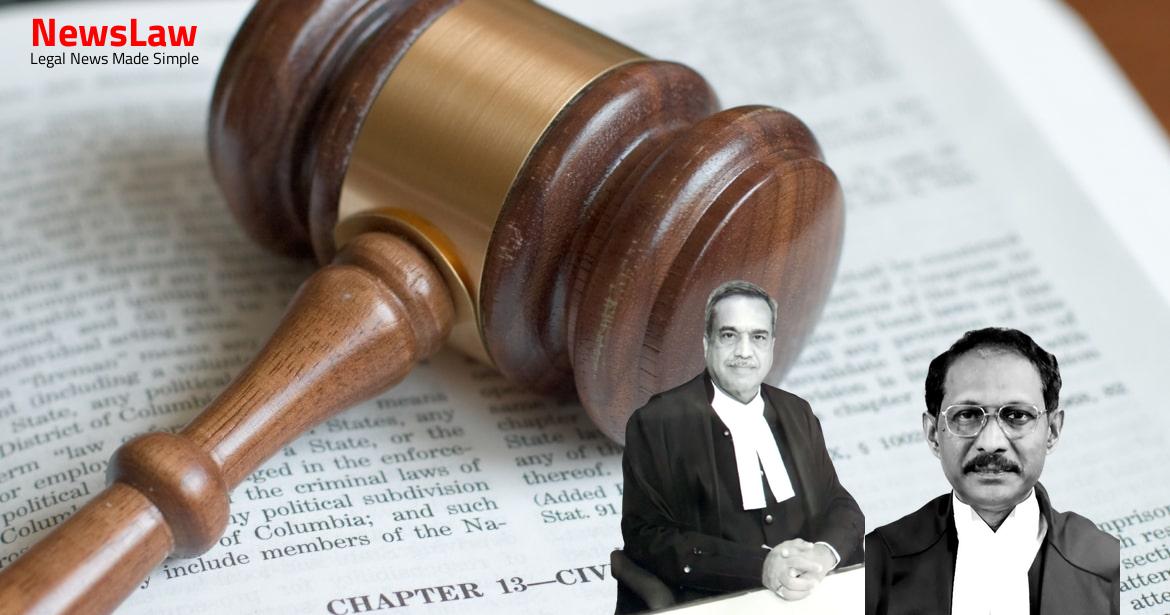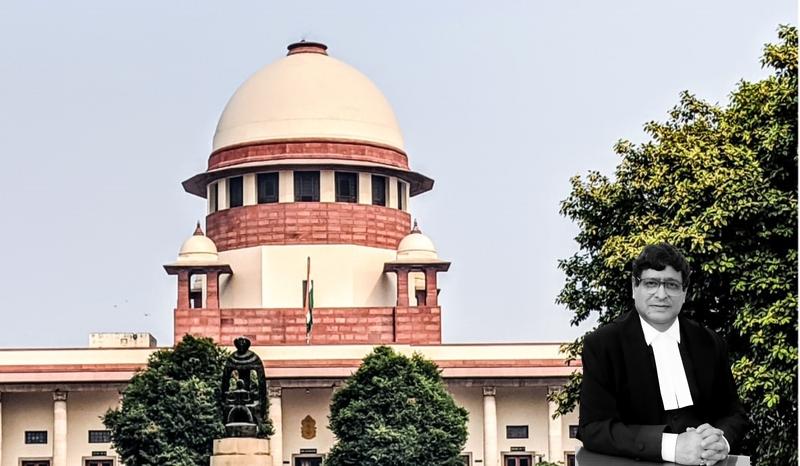In a landmark judgment by the Supreme Court of India, the validity of the assignment of rights in the 1987 agreements has been determined. This case delves into the intricacies of contractual obligations and the rights of the parties involved. Stay tuned to know more about the verdict regarding the assignment of rights in the 1987 agreements.
Facts
- The Appellants and the original vendees had an agreement in 1986 for the suit property.
- Subsequently, the original vendees withdrew their suit in 1988 on the grounds of fraudulent registration.
- Respondent Nos. 1 filed separate suits in 1988 seeking specific performance based on 1987 agreements.
- The trial court dismissed all four suits in 2011, leading to the finality of the withdrawal of the original vendees’ suit.
- Respondent Nos. 1 tried to revive the original vendees’ suit but their application was dismissed in 2008.
- The High Court judgment in 2014 decreed the suits for specific performance against the Appellants.
- The High Court affirmed the validity of the assignment of rights in favor of the original vendees under the 1987 agreements linked to the 1986 agreement.
- While the High Court ruled out specific performance or damages, it allowed the return of earnest money with interest to the original vendees.
- The trial court found that revocation of the 1986 agreement and withdrawal of the lawsuit by the original vendees prevented re-agitation for specific performance.
- The trial court highlighted the lack of consent by the Appellants for the conditions in the 1987 agreements, making them unenforceable.
- The trial court reasoned that the Plaintiffs failed to demonstrate readiness and willingness to perform the contracts as per the terms of the 1987 agreements.
- It was emphasized that assignment of obligations under the 1986 agreement without the written consent of the original owner was not permissible.
- The trial court reiterated that without showing readiness and willingness, no right of specific performance could accrue to the original vendees.
Also Read: Priority of Employees’ Dues in Asset Sale: SARFAESI Act vs. Land Revenue Code
Issue
- The issue at hand is whether there was a valid assignment of rights by the original vendees to the Respondent Nos. 1 under the 1987 agreements.
- This issue arises from a perusal of the entire record.
- It is crucial to determine the validity of this assignment in order to ascertain the rights of the parties involved.
- The validity of the assignment will impact the nature of relief that may be granted to the parties.
Also Read: Judgment Acquitting Accused in Satpal v. State of India
Arguments
- The 1987 agreements were contingent contracts under Section 31 of the Indian Contract Act, 1872.
- The rights in the 1987 agreements could only be enforced upon the completion of the 1986 agreement.
- The interest created under the 1987 agreements was a contingent interest under Section 21 of the Transfer of Property Act.
- Senior counsel for the Appellants argued that there was no privity of contract between the Appellants and ARG_PETITIONER.
- Respondent’s argument regarding collusion between landowners and original vendees to avoid sale of the suit property.
- Original vendees not contesting the suit at any point of time as evidence of collusion.
- Pointing out the impossibility of termination of the 1986 agreement in 1988.
Also Read: Landmark Supreme Court Judgment in Parasvanath Developers Ltd. v. Chandigarh Housing Board
Analysis
- The trial court and the District Judge correctly concluded that there was no consent from the original owners for the assignment of the 1986 agreement to Respondent Nos.
- The signature of Mr. Naranbhai Patel on development permissions and presence at the Bhoomi Pujan did not signify consent for assignment.
- The 1987 agreements were contingent on the 1986 agreement and became void when the original owners canceled the 1986 agreement.
- The High Court clarified that withdrawal of a suit by the original vendees did not prejudice Respondent Nos. 1’s right to specific performance of the 1986 agreement.
- There was no privity of contract between the original owners and Respondent Nos. 1, hence specific performance could not be sought against the original owners.
- The Power-of-Attorney did not conclusively establish the continuation of the 1986 agreement.
- The 1987 agreements could be deemed as novation of the 1986 agreement, but no evidence proved readiness and willingness to perform on the part of Respondent Nos. 1.
- The Appellants giving consent for the assignment was not clearly established.
- Implied consent for the assignment was suggested from the conduct of the original owner, Naranbhai Patel.
- The assignment was considered invalid as the original vendees canceled the Power-of-Attorney and did not fulfill their obligations under the 1986 agreement.
- Respondent No. 1 cannot seek specific performance of the 1986 agreement or the 1987 agreements against the Appellants.
- In order to seek specific performance, Respondent No. 1 must sue as ‘representatives-in-interest’ of the original vendees under Section 15(b) of the Specific Relief Act.
- Section 15(b) allows the representative in interest or the principal of any party to obtain specific performance of a contract.
- Specific performance may not be obtained if the contract specifies that the party’s interest shall not be assigned, or if personal qualities of that party are key to the contract.
- Performance can only be enforced if the party has already performed their part, or if their representative in interest or principal has performed and it has been accepted by the other party.
- In Khardah Company, the jute manufacturers were entitled to receive price for the jute upon delivery of shipping documents.
- The rule in Indu Kakkar may be applied to contracts involving intertwined mutual rights and obligations.
- Contracts may involve a bundle of rights and obligations which can be assigned unless personal in nature or expressly prohibited.
- Specific performance of an assigned contract is subject to satisfying conditions.
- In the case of Haryana State Industrial Development Corporation Ltd., land was allotted subject to a construction condition.
- Assignment of rights is permissible unless contracts are personal in nature.
- Terms of the contract and circumstances determine assignability of contractual interests.
- Court found that some contracts implied non-transferability of rights.
- Respondent Nos. 1 are not entitled to specific performance of the 1986 and 1987 agreements based on facts and law.
- There is a prima facie indication of collusion between the Appellants and the original vendees to frustrate performance of the 1987 agreements.
- The original vendees seem to have relinquished their rights in the 1986 agreement to block the performance of the 1987 agreements.
- Considering the circumstances of collusion and frustration of agreements, compensation is awarded to the Plaintiffs for the loss of opportunity and inconvenience suffered.
Decision
- No remedy available against Appellants due to absence of privity of contract.
- Original vendees directed to pay Rs. 1,80,000 with interest as damages to Plaintiffs.
- High Court to release and remit back consideration amount deposited by Plaintiffs.
- Plaintiff entitled to compensation for loss due to non-performance of contract.
- Partly allowed appeals, impugned judgement set aside with specified terms.
- Trial court directed original vendees to reimburse earnest money of Rs. 5000 with interest, which is agreed upon.
Case Title: KAPILABEN Vs. ASHOK KUMAR JAYANTILAL SHETH THROUGH POA GOPALBHAI MADHUSUDAN PATEL
Case Number: C.A. No.-010683-010686 / 2014



